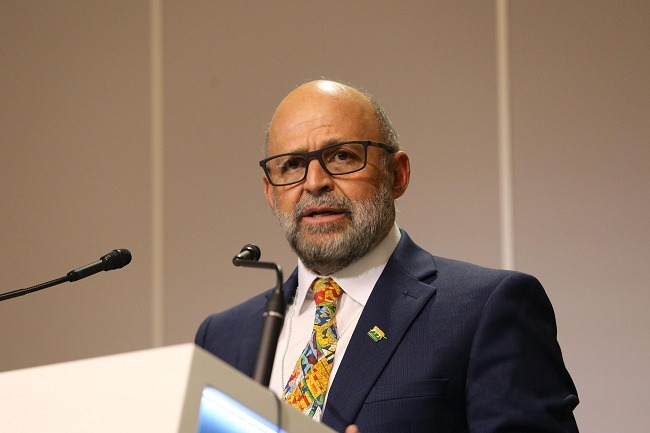The Global Environment Facility (GEF), in collaboration with the Tropical Biology Association, is set to train 14 Operational Focal Points (OFPs) from across West Africa in a high-level workshop aimed at enhancing governance, oversight, and strategic management of its country-driven environmental projects.
The capacity-building event will be held in Accra, Ghana, on April 10-11, 2025, and will showcase real-world solutions and include a field visit to selected project sites in the country.
The training is part of the GEF’s broader strategy to ensure greater impact, transparency, and accountability in the implementation of projects across its partner countries.
Since its establishment in 1991, the GEF has disbursed US$6.2 billion in Africa, supporting more than 1,800 projects, focused on pursuing goals in biodiversity, climate change, land degradation, and sustainable development.
“This initiative strengthens the Operational Focal Points’ project oversight and monitoring capacity, enabling them to take greater ownership of their portfolios and maximize the impact of GEF resources. By fostering collaboration and knowledge sharing through training activities and field visits, we create an opportunity for these focal points to learn from one another and optimize the management of GEF-funded projects,” said Carlos Manuel Rodríguez, CEO and Chairperson of the GEF.
“We believe that by investing in the capacity of our partners, we can drive impactful environmental outcomes that benefit both people and nature he added.”
The initiative will directly support OFPs from 14 countries in Western Africa: including Ghana, Togo, Nigeria, Sao Tome Principe, Guinea Bissau, Guinea, Liberia, Cabo Verdie, Cameroon, Gambia, Sierra Leone, Cote D’Ivore and Benin.
The event brings together environmental leaders, policymakers, and project managers, and is expected to foster stronger collaboration and learning among African nations in the effective utilization of GEF resources.
“I am optimistic, that the discussions will shape the policies and actions that determine how we achieve environmental sustainability with GEF resources. We must work collectively – government, private sector, civil society and academia, to ensure that the decision-making processes in GEF reflect national priorities critical in achieving the Sustainable Development Goals (SDGs), national climate targets, Global Biodiversity Framework targets, and the aspirations of “the Ghana we want” and in general the Africa We Want under the African Union Agenda 2063″ reiterated the operational focal person for Ghana, Peter Justice Derry.
Ghana’s role as host for this workshop underscores the country’s commitment to environmental sustainability and its active participation in global efforts to address environmental challenges.
The workshop will feature key sessions on best practices in project oversight, ensuring greater financial accountability, and strategic alignment with national priorities.
Participants will also visit GEF-funded projects in Ghana, providing a first-hand opportunity to assess project outcomes, engage with local stakeholders, and share knowledge on implementation experiences.
About the Global Environment Facility
The Global Environment Facility (GEF) includes several multilateral funds working together to address the planet’s most pressing challenges in an integrated way. Its financing helps developing countries address complex challenges and work towards meeting international environmental goals.
Over the past three decades, the GEF has provided more than $26 billion in financing, primarily as grants, and mobilized another $148 billion for country-driven priority projects.
The Tropical Biology Association (TBA) is a world-leading NGO dedicated to capacity building in biodiversity conservation.
Since its establishment in 1994, TBA has trained generations of conservation leaders from 96 countries around the world. Today, the organization runs impactful programmes in Africa and Asia, empowering students, professionals, and organizations to create lasting, positive change for the natural environment.



